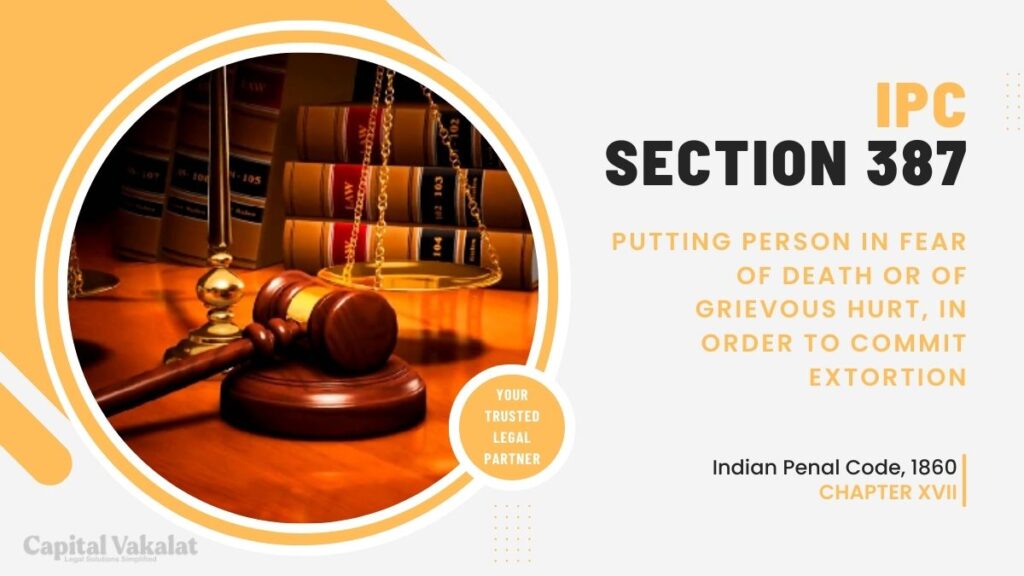Section 387 of the Indian Penal Code (IPC) plays a crucial role in addressing acts that involve putting a person in fear of death or grievous hurt with the intent of committing extortion.

In this article, we will delve into the intricacies of this legal provision, exploring its historical context, legal implications, real-life examples, challenges in enforcement, and much more.
Understanding Section 387 IPC
At its core, Section 387 IPC deals with situations where an individual deliberately instills fear of death or grievous hurt in another person to coerce them into parting with their property or valuables. To comprehend this provision fully, one must grasp the nuances of what constitutes putting a person in fear and the nexus with extortion.
Historical Context
This legal provision has a rich historical background, evolving over the years to adapt to societal changes. Landmark legal cases have significantly influenced the interpretation of Section 387 IPC, shaping its current form and application in the Indian legal system.
Legal Implications
Violation of Section 387 IPC carries severe penalties, reflecting the gravity of the offense. Offenders may face imprisonment and fines, and understanding the legal consequences is crucial for both the general public and law enforcement agencies.
Real-life Examples
To illustrate the real-world impact of Section 387 IPC, we will explore notable cases where this provision was invoked. Examining the outcomes of these cases provides valuable insights into the effectiveness of the legal system in addressing such threats.
Challenges in Enforcement
Despite its importance, enforcing Section 387 IPC poses challenges for law enforcement. Identifying and overcoming these challenges is essential to ensure the effective implementation of this provision in safeguarding individuals from extortion-related threats.
Public Awareness and Safety
Raising public awareness about Section 387 IPC is vital for preventing such crimes. The article will discuss the role of awareness campaigns and the safety measures individuals can adopt to protect themselves from potential extortion attempts.
International Comparisons
A comparative analysis with similar legal provisions in other countries offers a broader perspective. By learning from global practices, we can identify areas where the Indian legal framework can be strengthened to combat extortion-related threats more effectively.
Critiques and Controversies
No legal provision is without its critiques and controversies. This section will explore various perspectives on Section 387 IPC, including criticisms and debates surrounding potential amendments or reforms to enhance its efficacy.
Conclusion
In conclusion, Section 387 IPC is a crucial tool in maintaining societal order and protecting individuals from extortion-related threats. This article has provided a comprehensive overview of its key aspects, emphasizing the need for a robust legal framework and public awareness to address and prevent such offenses.
Frequently Asked Questions
How can individuals report a potential violation of Section 387 IPC, and what steps should they take to ensure their safety?
Individuals can report such cases to the local police. Taking immediate safety measures and documenting the threats can be crucial for a swift and effective response.
Are there any proposed amendments to Section 387 IPC to address emerging challenges in the digital age?
The article discusses critiques and potential reforms, shedding light on ongoing debates about adapting Section 387 IPC to contemporary challenges.
Can a person be charged under Section 387 IPC if the threat was not carried out, but the intent was evident?
Yes, Section 387 IPC can be invoked based on the intent to cause fear of death or grievous hurt, even if the actual harm did not occur.
What role does international cooperation play in combating extortion-related offenses covered by Section 387 IPC?
The article explores international comparisons, highlighting the importance of learning from global practices to enhance the effectiveness of Section 387 IPC.